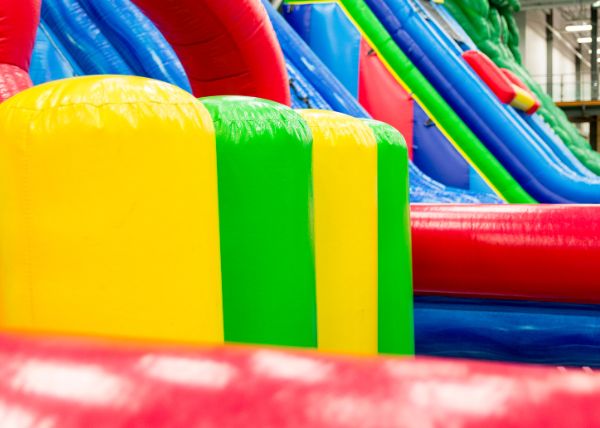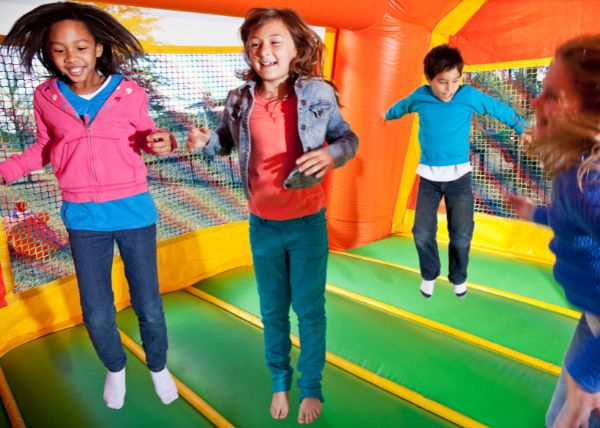Free Consultation - Call Now:
Free Consultation - Call Now:

As the spring weather emerges, many families are starting to plan outdoor parties and events, including renting bounce houses for children to enjoy. While bounce houses can provide hours of fun, it's important to prioritize safety to prevent accidents and injuries. Injuries resulting from bounce house incidents can be severe, potentially resulting in head and neck injuries, tooth loss, or broken bones. If your child has been injured in a bounce house accident, whether at a private party or public event, you need a bounce house accident lawyer on your side. Contact the attorneys at Heintz Law for a free consultation.
While seemingly a house of cushiony fun, thousands of children are injured in bounce houses. Several factors can result in these incidents, such as weather conditions, lack of supervision, improper setup or maintenance, or rough play inside the bounce house. The University of Georgia released a study in 2022 regarding wind-related bounce house incidents. The study's lead author, Dr. John Knox, noted that there are about 10,000 emergency room visits due to bounce house accidents. So, what types of injuries do these visits see?
Some of the most common injuries seen in bounce house accidents include:
Bounce houses are a fun activity for children, so how can they avoid injury? We'll outline some key tips to help prevent bounce house accidents.

At Heintz Law, we're all about keeping the fun alive while ensuring safety is a top priority. Here are some tips to consider to help avoid a bounce house accident:
By following these simple tips, you can ensure that your bounce house experience is filled with laughter and joy while keeping safety at the forefront. Remember, a little caution goes a long way in preventing bounce house accidents. If your child has been injured, you may be able to recover damages. Contact Heintz Law for compassionate, relentless support.
If you're considering pursuing legal action for a bounce house incident, you may be wondering about liability and legal responsibilities. Determining liability depends on various factors, including where the incident occurred. Here's a breakdown of liability considerations based on whether the bounce house incident took place at a private residence or a public event:
When a bounce house is set up at someone's private residence, such as during a birthday party or family gathering, liability for any injuries sustained typically falls on the homeowner or the individual hosting the event. Homeowners have a duty to ensure the safety of their guests and provide a reasonably safe environment for recreational activities like bouncing in a bounce house. If negligence, such as improper setup, lack of supervision, or failure to warn guests about potential risks, contributed to the injury, the homeowner may be held liable for damages. If the incident resulted from faulty equipment or an error in set-up, the manufacturer or rental company of the bounce house may also share liability.
In the case of bounce houses at public events, liability may extend to multiple parties involved, including event organizers, rental companies, and property owners. Event organizers have a duty to ensure the safety of attendees, including providing properly maintained bounce houses and adequate supervision. Rental companies are responsible for supplying safe and structurally sound bounce houses, as well as offering instructions for safe use and installation. Property owners hosting the event may also share liability if their negligence, such as choosing an unsafe location or failing to address hazards, contributed to the incident.
In some cases, liability for bounce house incidents may involve shared responsibility among multiple parties. For example, if a bounce house rental company failed to properly install the equipment, and event organizers did not adequately supervise its use, both parties could be held liable for resulting injuries.
Navigating liability in bounce house incidents can be complex, requiring careful examination of the circumstances surrounding the incident. Consulting with a knowledgeable bounce house injury attorney experienced in premises liability and recreational accidents can provide valuable legal guidance and help determine liability for damages. At Heintz Law, our legal team has been successfully resolving cases in the Bradenton-Sarasota area for over 30 years.
If your child has been injured in a bounce house accident, seek legal guidance from our personal injury attorneys who specialize in bounce house accidents. We offer free consultations for your convenience.
905 6th Avenue West
Bradenton, FL 34205
Phone: 941-748-2916
Fax: 941-746-4281
Map & Directions
Phone: 941-238-0093
Fax: 941-746-4281
Map & Directions
Attorney Advertising | Prior results do not guarantee a similar outcome. The information on this website is for general information purposes only. Nothing on this site should be taken as legal advice for any individual case or situation. This information is not intended to create, and receipt or viewing does not constitute, an attorney-client relationship. This site is protected by reCAPTCHA and the Google Privacy Policy and Terms of Service apply.